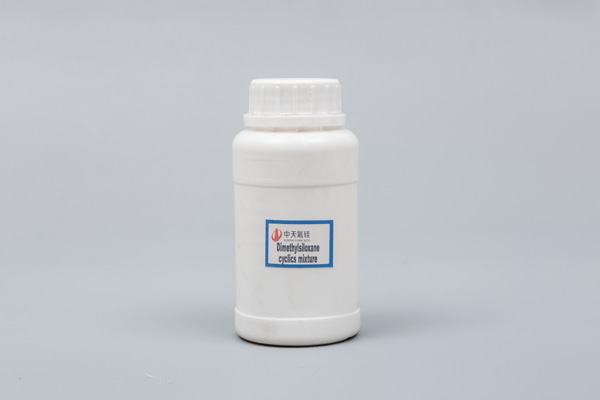Silane Coupling Agents

Vörulýsing
Silane coupling agent, also known as silane treatment agent and primer, is a kind of low molecular organic silicon compound with special structure. The speciality of silane coupling agent lies in the two types of reactive groups with different chemical properties contained in it. One of the reactive group can react with organic materials, and the other is able to form chemical bonds with inorganic materials. Silane coupling agent is also the most widely used coupling agent today.
Zhongtian Silane Coupling Agents Product Series
Zhongtian, a silicone product supplier, has its own silane coupling agent product series. If you are looking for high-quality silane coupling agents, we can provide you, an attractive silane coupling agent price, with dimethylcyclosiloxane, hexamethylcyclotrisiloxane, and octamethylcyclotetrasiloxane.
Dimethylcyclosiloxane (DMC)
Product Name: Dimethylcyclosiloxane (DMC)
Hexamethylcyclotrisiloxane (D3)
Product Name: HexamethylcyclotrisiloxaneMolecular Formula: [(CH3 ) 2 SiO]3Molecular Weight: 222.47CAS No.: 541-05-9UN No.: 1325Physical and Chemical Properties:Melting Point: 64℃ Boiling Point:134℃R...
Octamethylcyclotetrasiloxane (D4)
Product Name: Octamethylcyclotetrasiloxane (D4 )
Silane Coupling Agent Application
The silane coupling agent is good at improving the adhesion of organic and inorganic material interfaces and is widely used to enhance the strength and properties of glass fiber reinforced plastics. In recent years, silane coupling agent has been used in the production of inorganic-organic hybrids, such as laminates for printed circuit boards, artificial marble, plastic magnets, and silica immobilized bioactive substances. In addition to their use for improving interfacial adhesion, various applications for silane coupling agents are being developed. For example, they are now used to synthesize cross-linkable polymers using the reactivity of hydrolysis groups and to obtain antistatic and antimicrobial properties through surface treatment. In the near future, silane coupling agents will be employed in a wider range of fields.

